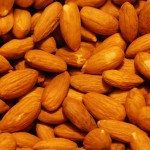(FODMAP=Fermentable Oligo-Di-Monosaccharides and Polyols)
FODMAPs are carbohydrates (sugars) that are found in foods. Not all carbohydrates are considered FODMAPs.
The FODMAPs in the diet are:
• Fructose (fruits, honey, high fructose corn syrup (HFCS), etc)
• Lactose (dairy)
• Fructans (wheat, onion, garlic, etc)(fructans are also known as inulin)
• Galactans (beans, lentils, legumes such as soy, etc)
• Polyols (sweeteners containing sorbitol, mannitol, xylitol, maltitol, stone fruits such as avocado, apricots, cherries, nectarines, peaches, plums, etc)
FODMAPs are osmotic (means they pull water into the intestinal tract), may not be digested or absorbed well and could be fermented upon by bacteria in the intestinal tract when eaten in excess.
Symptoms of gas, bloating, cramping and/or diarrhea may occur in those who could be sensitive to the effects of FODMAPs. A low FODMAP diet may help reduce symptoms, which will limit foods high in fructose, lactose, fructans, galactans and polyols.
The low FODMAP diet is often used in those with irritable bowel syndrome (IBS). The diet also has potential use in those with similar symptoms arising from other digestive disorders such as inflammatory bowel disease.
This diet will also limit fiber as some high fiber foods have also high amounts of FODMAPs. (Fiber is a component of complex carbohydrates that the body cannot digest, found in plant based foods such as beans, fruits, vegetables, whole grains, etc)







 Nutrition in cancer care embodies prevention of disease, treatment, cure, or supportive palliation. Caution should be exercised when considering alternative or unproven nutritional therapies during all phases of cancer treatment and supportive palliation, as these diets may prove harmful. Patient nutritional status plays an integral role in determining not only risk of developing cancer but also risk of therapy-related toxicity and medical outcomes. Whether the goal of cancer treatment is cure or palliation, early detection of nutritional problems and prompt intervention are essential.
Nutrition in cancer care embodies prevention of disease, treatment, cure, or supportive palliation. Caution should be exercised when considering alternative or unproven nutritional therapies during all phases of cancer treatment and supportive palliation, as these diets may prove harmful. Patient nutritional status plays an integral role in determining not only risk of developing cancer but also risk of therapy-related toxicity and medical outcomes. Whether the goal of cancer treatment is cure or palliation, early detection of nutritional problems and prompt intervention are essential. 

